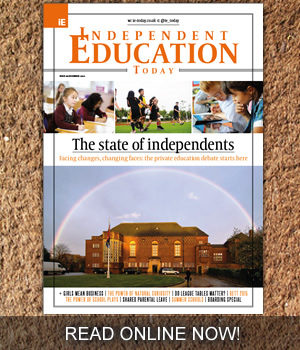Brake, the road safety charity, has produced a free toolkit to help local authorities, community campaigners, emergency services and schools encourage drivers to go 20mph or below in towns and villages. The Go 20 toolkit, supported by Allianz Insurance, also helps raise awareness about the benefits of 20mph limits in making streets safer and more pleasant for people to walk, cycle and live healthy lifestyles.
Resources including posters, web banners, leaflets, factsheets and an infographic are available to download for free at www.brake.org.uk/go20toolkit. Hard copies of the leaflet and two posters are available to order.
The toolkit is being launched during Road Safety Week, the UK’s biggest road safety event, coordinated by Brake, two years on from Brake launching the Go 20 campaign in partnership with other UK charities.
Earlier in the year Brake and Allianz Insurance released a survey showing overwhelming public support for 20mph limits, with eight in 10 people (78 per cent) thinking 20mph should be the norm around schools, homes, and in town and city centres. The Brake and Allianz Insurance survey also found:
* seven in 10 (72 per cent) say roads in their town or village need to be safer for walking and cycling;
* eight in 10 (81 per cent) say traffic travels too fast on some (51 per cent) or most (30 per cent) of their local roads;
* eight in 10 (79 per cent) think it would encourage more people to walk or cycle if roads and routes in their town or village were made safer.
When drivers ‘go 20’ they have more time to react in an emergency and avoid hitting someone or something: stopping distances at 20mph are about half those at 30mph. Children benefit especially, since they struggle to judge the speed of vehicles over 20mph.
Many areas that have introduced 20mph limits have seen reductions in casualties, such as Portsmouth where they fell by 22 per cent, and Camden, where crashes reduced by 54 per cent. Other high-profile local authorities ‘going 20’ include the City of London, Birmingham, Newcastle and Edinburgh. It’s estimated that 12.5million people now live in places that have implemented 20 limits or are committed to doing so.
20mph limits also promise to deliver improvements in public health and social activity, and reductions in congestion, pollution and noise, as more people feel safe to walk and cycle for local journeys, commuting or simply for enjoyment. Making streets safer and more pleasant for walking and cycling can also benefit local economies.
Julie Townsend, deputy chief executive of Brake, said: “Brake’s Go 20 toolkit is a brilliant resource to help groups and organisations spread the message about the importance of drivers going 20 or below in communities. The Go 20 campaign is about defending everyone’s right to walk and cycle freely without being endangered, whether it’s to get to work, school, the shops, or just getting out and being active. We need to tackle the senseless and violent casualties that happen daily on our roads, and we need to enable people to live healthy, active, social lives. It’s clear that 20mph limits in communities can help bring this about and it is clear that people want this. This new toolkit will help empower campaigners, community leaders and road safety professionals to raise awareness and bring about positive change in their area.”
Jon Dye, chief executive, Allianz Insurance, said: “We are delighted to continue working with Brake to campaign for safer streets and communities. The new Go 20 toolkit will help concerned individuals, schools, emergency services and local authorities to promote the benefits of drivers going 20 around homes, schools and shops. Our survey with Brake earlier in the year showed that there is overwhelming public support for 20 limits and for safer walking and cycling. Allianz is committed to improving road safety across the world and is involved in a variety of initiatives in 31 countries. Allianz is also a proud supporter of the UN’s Decade of Action for Road Safety 2011-2020 initiative.”
Brake is encouraging local authorities, campaigners and educators to visit brake.org.uk/GO20toolkit and use the contents to promote the Go 20 message in their area. Individuals can also write to their MP to support the Go 20 campaign and pledge to GO 20 themselves at brake.org.uk/pledge.
brake.org.uk/GO20toolkit












